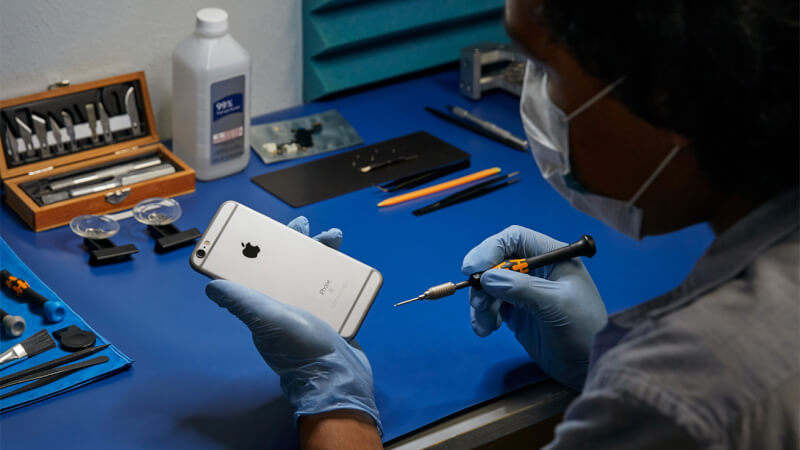Apple Expands User Repairs

Apple has just announced a major change to its repair process that will make it easier for customers and independent repair shops to repair iPhones using recycled Apple parts. In the coming months, certain iPhone models will be eligible for repairs using these recycled parts.
This move aims to give customers more options, make their devices last longer, and reduce the environmental impact of repairs. John Ternus, Apple's senior vice president of Hardware Engineering, explained that Apple always strives to offer the best experience for its customers while being mindful of the planet. Over the past two years, Apple has worked hard to ensure that recycled parts meet the same safety, security and privacy standards as new ones.
With this new change, Apple hopes to offer more convenience to its customers and extend the lifespan of its products. One of the challenges Apple faced was ensuring that recycled parts are genuine and safe to use. Apple has developed a process for "pairing" these parts to the device that ensures they meet all necessary standards. The calibration of genuine Apple parts, whether new or used, will be done on the device after the part is installed.
This means that future iPhone models will also support recycled biometric sensors. To make the repair process simpler, Apple is removing the need for customers and repair shoppers to provide the device's serial number when ordering parts for certain types of repairs. In addition, Apple is extending its Activation Lock feature to iPhone parts to prevent stolen iPhones from being used as replacement parts.
This feature will limit the calibration of a recycled part if it detects that it comes from a device with Activation Lock or Lost Mode enabled. Apple also believes it is important for owners of a device to have access to its full repair history. That's why Apple will expand its Parts and Service History feature to show whether a part used in a repair is new or reused.
This announcement is part of Apple's ongoing efforts to improve access to safe and affordable repairs. In the past five years, Apple has nearly doubled the number of service locations that have access to genuine Apple parts and training. Launched in 2022, the Self Service Repair program now supports 40 Apple products in 33 countries and regions and offers manuals, genuine parts and tools for those with the necessary repair experience.
Latest smartphone
-
18 Febsmartphone
-
07 Jansmartphone
OnePlus 13
-
03 Decsmartphone
OnePlus 13 will launch globally in January 2025
-
25 Octsmartphone
OnePlus launches OxygenOS 15
-
17 Octsmartphone
OxygenOS 15 goes live on October 24
-
20 Sepsmartphone
Apple can be forced to open Siri
-
10 Sepsmartphone
A18 Pro chip in iPhone 16 Pro is 15 percent faster
-
10 Sepsmartphone
Apple's event brought lots of news.
Most read smartphone
Latest smartphone
-
18 Febsmartphone
OnePlus Watch 3 now hits stores
-
07 Jansmartphone
OnePlus 13
-
03 Decsmartphone
OnePlus 13 will launch globally in January 2025
-
25 Octsmartphone
OnePlus launches OxygenOS 15
-
17 Octsmartphone
OxygenOS 15 goes live on October 24
-
20 Sepsmartphone
Apple can be forced to open Siri
-
10 Sepsmartphone
A18 Pro chip in iPhone 16 Pro is 15 percent faster
-
10 Sepsmartphone
Apple's event brought lots of news.






